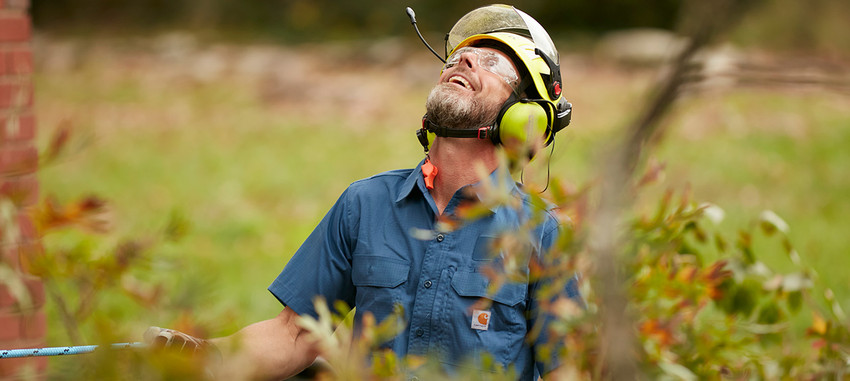Excerpt from “Groundie” by Jeff Jepson: The Role of the Ground Worker….At a Glance.
Sherrilltree Jun 17th 2021This could be the most difficult job you’ll ever have. But, if you stick with it long enough, it might become the best job you’ll ever have. Sadly, most ground workers don’t last very long. The majority quit within the first couple years of employment. You may be inclined to do likewise, even after only a few weeks of work. This is perfectly understandable, for tree work is hard work. It is physically, mentally, and emotionally demanding. It is also extremely dangerous work. The tree care profession consistently ranks near the top of the list of most dangerous occupations. It’s no wonder then why so many move on to find safer and softer work.
But for the rugged and determined individual, who isn’t afraid of good old-fashioned hard work, and doesn’t jump ship when the “going gets tough,” awaits a profession in the great outdoors filled with opportunities for challenge, adventure and achievement. But before we examine what the work of a groundie looks like in a specific detail (chapters 2-4), let’s first take a look at what it looks like in general.
There are at least six prominent features of tree work that you can expect to experience on a regular basis—work that is (1) meaningful, (2) relational, (3) challenging, (4) adventurous, (5) dangerous, and (6) achievement-oriented. Like the ingredients of a good soup, each one will add flavor to your job and put pleasure in your work.
Meaningful Work
Few things are more motivating than knowing you have something important to do—something worth getting out of bed for. As a ground worker, your work is important—your work matters. Whether you help with tree planting, pruning, repairing, cabling, fertilizing, controlling insect pest and diseases, or removing trees entirely, your work matters because it contributes to the “common good”—the safety, health, and happiness of other people as you make the neighborhoods in which they live more attractive, healthy, and safe. Your work is also important to the welfare of wildlife, as it contributes to the enhancement, preservations, and even the creation of habitat necessary for their survival.
Knowing that your work is important also contributes to your own well-being and happiness. And those who are happy in their work—who have a positive attitude toward it—are more appreciated by their coworkers and bosses, and have much lower rates of conflict, stress, and absenteeism. They also get paid more and get promoted quicker.
To read more on the six prominent features of tree work, and other great content, pick up your own copy of “Groundie” by Jeff Jepson.
Jeff Jepson has trained dozens of groundies since he and his wife Bonnie began Beaver Tree Service in Longville, Minnesota in 1989. Along with being a certified arborist, climber, and groundie himself, Jeff has written several other books for the tree care profession, including “To Fell a Tree”, “Knots at Work”, and the best seller, “The Tree Climber’s Companion”.

